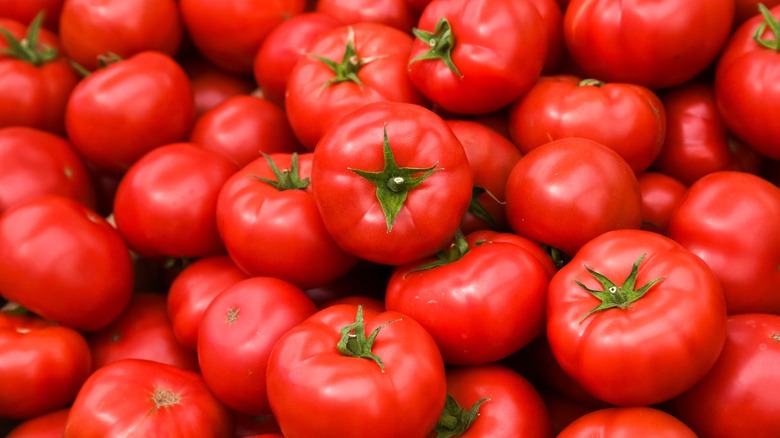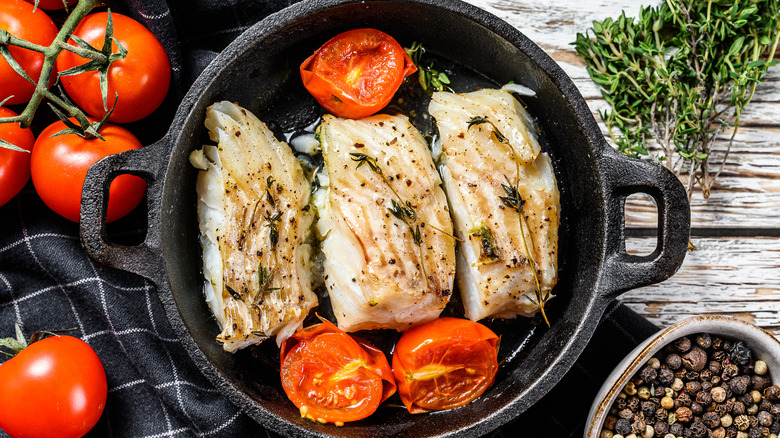Can You Cook Tomatoes In A Cast Iron Skillet?
If you own cast iron cookware, you've undoubtedly heard that there are some foods you shouldn't cook in cast iron due to their sticky or acidic nature. According to Eat This, Not That, acidic foods, like vinegar, lemons, and tomatoes, react with cast iron, resulting in damage to your cast iron and an off-putting metallic flavor in your food. No one wants that.
However, while acidic or sticky foods aren't ideal for cast iron cookware, there are a few methods you can use to ensure no harm is done to your cast iron or your food. Yes, this means you can in fact cook up your favorite homemade tomato sauce recipe in a cast iron skillet, so long as you first take measures to protect the cookware. Luckily for you, we have a few handy-dandy hacks for both reducing tomatoes' acidity and protecting your cast iron from what acidity remains.
The best ways to cook tomatoes in cast iron cookware
Tomatoes can be very acidic, so regardless of the type of cookware you're using, you may want to know a few ways to counter that acidity. According to WikiHow, one easy way to do so is by adding a bit of baking soda or sugar. You can also remove the tomatoes' seeds prior to cooking, as the seeds are the most acidic part of the fruit, and cook the tomatoes for a shorter period of time. Another way to reduce acidity is by choosing fully ripened tomatoes, which are less acidic than unripe tomatoes.
As for cooking tomatoes in cast iron specifically, the solution is simple. Be sure to properly season your cast iron by rubbing it with oil and baking it. This coating of oil keeps acidic foods from reacting with the iron and contaminating your food (much like how tomatoes' reaction with pewter used to have people convinced tomatoes were poisonous). According to Southern Living, you can indeed cook acidic foods like tomatoes in well-seasoned cast iron, but only do so for short periods of time to prevent damage to your cookware. So, there you go — cook away!

